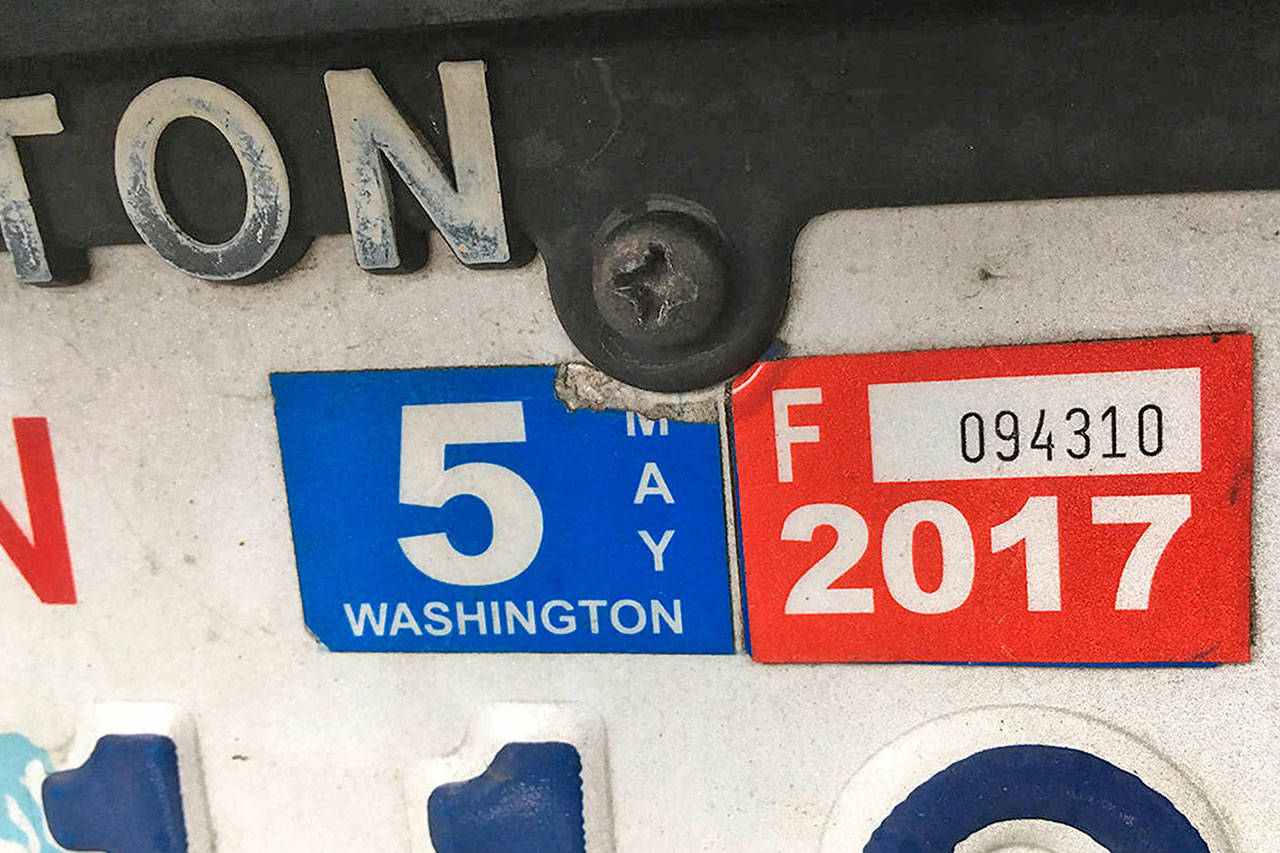It would raise $800,000 annually.
To help upgrade the pavement condition of Auburn’s arterial and collector streets within 20 years from the current 55 to 70 on the zero-to-100 Pavement Condition Index, which transportation engineers use to indicate the general condition of pavement in terms of such defects as potholes, edge cracking, depressions and bumps.
For many Auburn residents already beset by high taxes and bills, however, the $20 car tab fee has them seeing only green — and red.
Auburn’s Transportation Benefit District approved the car tab fee Dec. 13, 2016. But the news quickly stirred public uproar, prompting city leaders in February to table the measure for a few months. And in June to table it again for a few more months.
Still, there’s no hiding a fact plain to all eyeballs: Auburn’s collector or higher arterial roads are in sorry shape, and getting worse.
And the city doesn’t have the big bucks it once had to maintain them.
On Aug. 6 a City Council ad hoc committee charged with studying the issue, composed of Deputy Mayor Largo Wales, City Council members Bill Peloza, Bob Baggett and Claude DaCorsi, met at City Hall to consider issues related to the possible fee, and to nose out other sources of money, if such there are, in the city’s general fund.
But after listening to fairly sobering news about those other sources, the committee decided to establish a reserve account, specifically for road preservation.
Here is how the four came to that decision.
First, they asked, what about pulling money from various silos of the city budget and projects in the pipeline for 2017 and 2018?
City Finance Director Shelley Coleman answered that among those projects, city-wide bridge railing replacement, the second phase of the Auburn Environmental Park, city-wide street lighting improvements, public art and property acquisition for the Mary Olsen Park could delayed to the next budget cycle.
But several costly maintenance and operation improvements and repairs to the exterior and roof of Auburn City Hall cannot.
Coleman added that because of anticipated changes in Olympia to streamlined sales tax mitigation revenue that cities like Auburn receive from the state — to attenuate the hit they take from on-line retailers outside Washington, who are now allowed to collect revenue at the point of sale and not where the goods are made — between 2018 and 2023, Auburn is likely to receive almost $4.6 million less than it does today.
DaCorsi wondered whether the city could settle for a “passable” 65 on the PCI instead of 70, and whether that would lead to beneficial savings that the financial folks could put into a fund to help the city in its efforts to keep up all those arterials and collectors.
City Engineer Ingrid Gaub said that the goal of the Puget Sound Regional Council and its Transportation 2040 plan is to reach an average of 70 PCI.
“What our current standard is and what most of the other agencies in the region are looking for is to get to an average of 70,” Gaub said. “That doesn’t mean we have to get there in 20 years; that doesn’t mean we have to get there in 10 years; or in 40 years. When you are looking at how much money you are looking to put toward the program, it really comes down to how much money the city can put toward the program.”
And that, DaCorsi concluded, isn’t going to be enough, no way, no how.
“There’s no way we are going to be able to do $7 million worth of road repairs. It’s financially impossible, unless the city has this tremendous windfall of tax money coming in, which I don’t foresee…” DaCorsi said … “My recommendation is we find a way to put $1 million a year into our roads program to increase the level of construction slightly … At least that gives us a little financial wherewithal to do more.”
DaCorsi suggested that in the next budget cycle, the city could look for an additional $500,000 to add to that $1 million and incrementally increase the fund over the following years.
Baggett suggested establishing a reserve account specifically set aside for road preservation, though, he added, it would be available for emergencies.


